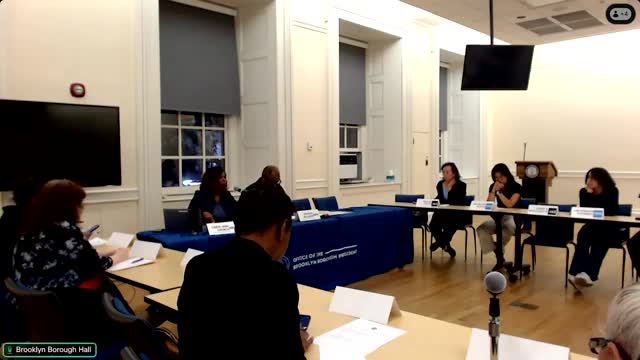Brooklyn Solid Waste Advisory Board urges public comment on DSNY’s draft 2026 waste plan
October 10, 2025 | Kings County - Brooklyn Borough, New York
This article was created by AI summarizing key points discussed. AI makes mistakes, so for full details and context, please refer to the video of the full meeting. Please report any errors so we can fix them. Report an error »

A representative of the Brooklyn Solid Waste Advisory Board told the Brooklyn Borough Board on Oct. 7 that the New York City Department of Sanitation has released a draft 2026 solid waste management plan and is accepting 45 days of public comment before the plan is submitted to the New York State Department of Environmental Conservation for review.
The advisory board representative summarized topics in the draft plan that it said should concern borough residents, including waste equity, health impacts on overburdened communities, commercial waste zones, the city’s zero‑waste by 2030 goal, community composting and the large cost to export residential trash. The representative said New York City spends more than $500 million a year to export residential trash to incinerators and landfills and encouraged community boards to assess local waste policy goals and engage in the review process.
The Department of Sanitation will hold a public meeting Oct. 27 to provide an overview; the Brooklyn Solid Waste Advisory Board (SWAB) plans to schedule a borough hearing and invited community boards to participate. The representative gave a contact email for more information: swab.brooklyn@gmail.com.
The SWAB role is defined by local law requiring each borough to have a volunteer advisory body to advise borough presidents on waste prevention, reuse and recycling policies. The representative noted the board meets on the first Monday of every month at Brooklyn Borough Hall and on Zoom and said it will provide a list of community districts lacking SWAB representation.
The advisory board representative summarized topics in the draft plan that it said should concern borough residents, including waste equity, health impacts on overburdened communities, commercial waste zones, the city’s zero‑waste by 2030 goal, community composting and the large cost to export residential trash. The representative said New York City spends more than $500 million a year to export residential trash to incinerators and landfills and encouraged community boards to assess local waste policy goals and engage in the review process.
The Department of Sanitation will hold a public meeting Oct. 27 to provide an overview; the Brooklyn Solid Waste Advisory Board (SWAB) plans to schedule a borough hearing and invited community boards to participate. The representative gave a contact email for more information: swab.brooklyn@gmail.com.
The SWAB role is defined by local law requiring each borough to have a volunteer advisory body to advise borough presidents on waste prevention, reuse and recycling policies. The representative noted the board meets on the first Monday of every month at Brooklyn Borough Hall and on Zoom and said it will provide a list of community districts lacking SWAB representation.
View full meeting
This article is based on a recent meeting—watch the full video and explore the complete transcript for deeper insights into the discussion.
View full meeting
